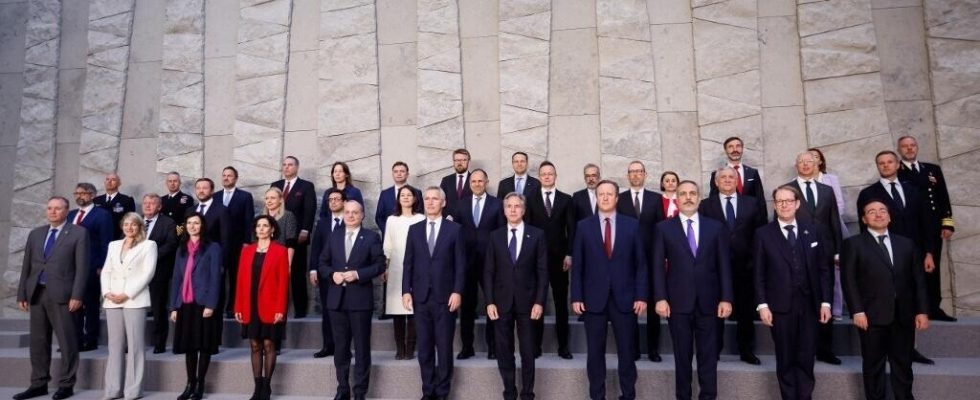The 32 NATO foreign ministers are meeting for two days at the headquarters of the Atlantic Alliance in Brussels. On the eve of the 75th anniversary of the Alliance, they decided this Wednesday to take over, in the long term, the direct aid provided to Ukraine by the contact group, known as the Ramstein group, whose management is exclusively ensured for the moment by the United States. But the prospect of this American support being called into question in the event of Donald Trump’s return to the White House pushes the allies to now want to provide this military support together.
3 mins
This Thursday morning, a ceremony at NATO headquarters will mark the 75th anniversary of the signing of the North Atlantic Treaty or Washington Treaty, reports our correspondent in Brussels, Pierre Benazet. According to NATO Secretary-General Jens Stoltenberg, the war in Ukraine returns the Alliance to the old confrontation with Russia. This is why the allies decided this Wednesday to prepare to take over the Ramstein group for support of Ukraine.
“ As we celebrate NATO’s achievements over the past 75 years, we do not rest on them, explained Jens Stoltenberg. Europe is today faced with a war on a scale that we thought was history. Strengthening NATO’s role in coordination and support is therefore a way to end this war in a way that Ukraine wins. 99% of support for Ukraine comes from NATO allies, but it is necessary to give this support an institutional framework more robust to ensure predictability and long-term commitment. »
At the start of the war, the allies did not want to entrust NATO with direct military support for Ukraine for fear of provoking an escalation on the part of Russia; NATO is therefore now committed to the logic of confrontation. Especially since Donald Trump’s possible return to business in the United States is worrying.
The Republican candidate has already announced that he may not come to the aid of deadbeats who do not devote 2% of their national wealth to defense. Doubt hangs over the solidarity of members in the event of an attack. And the concern is all the greater since the United States represents the backbone of the Alliance, points out Guillaume Garnier, researcher at Ifri.
“ The United States represents 70% of NATO military spending. If they ever left NATO, it would be another organization. It would change its nature. That would be the nightmare scenario. Will it come true if Trump is actually elected? There will be debates and probably a certain number of institutions will dissuade him from doing so… »
The members of the alliance should this Thursday discuss a proposal for a fund for Ukraine of 100 billion euros over five years, an objective which aims, diplomats say, precisely to protect kyiv from political changes in Washington.
Read alsoNATO in ten questions
